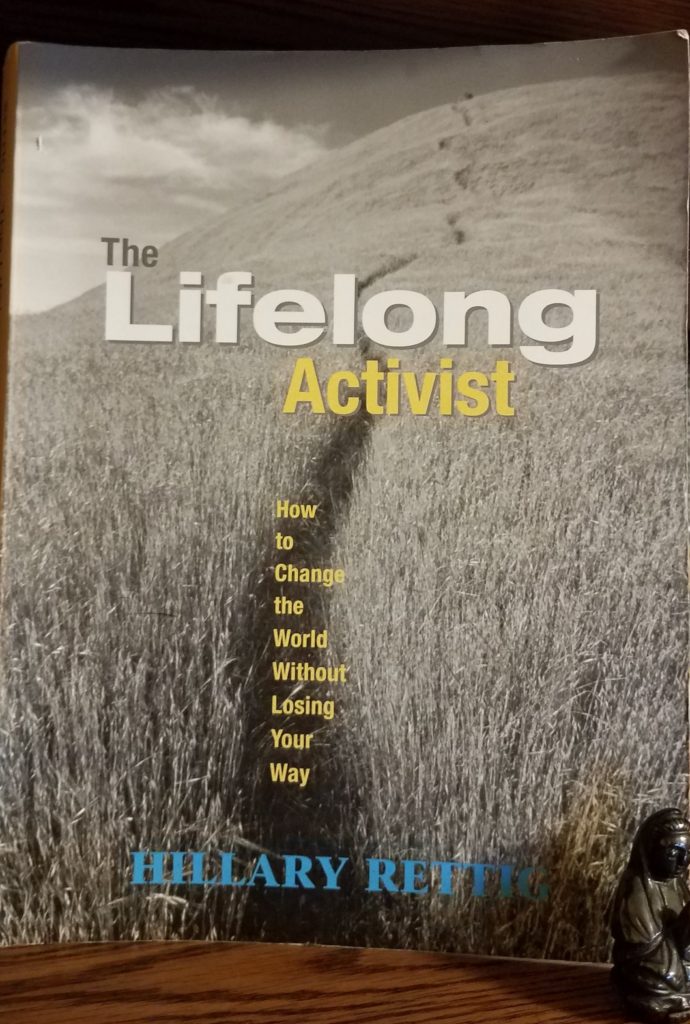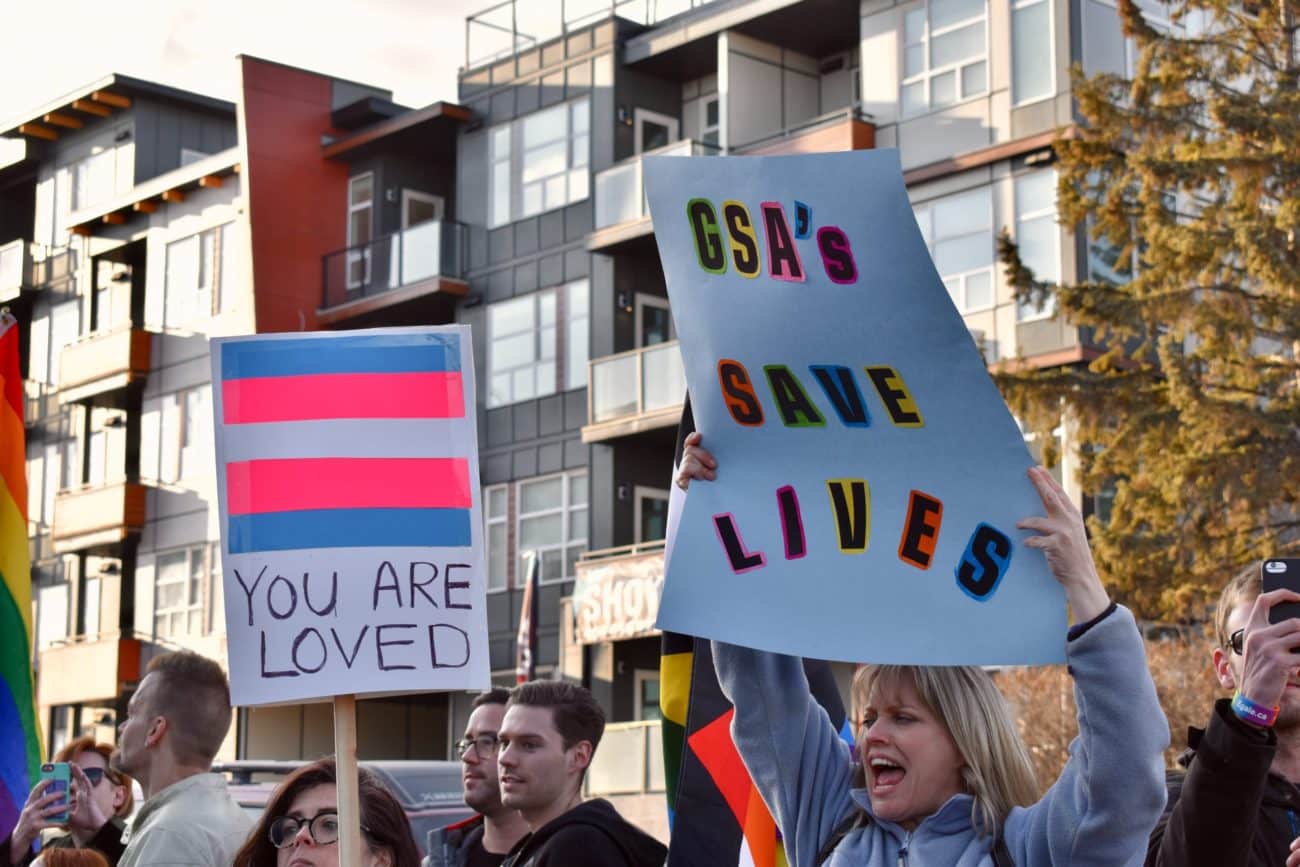- Happy Activism: A Sustainable Way to Create Change Without Burnout - February 9, 2026
- The Meaning of Critical Thinking: A Key Skill for Navigating Today’s Information Landscape - November 3, 2025
- Grandparents Can Develop Activist Grandchildren - September 29, 2025
Last Updated on October 23, 2024
Don’t let fear get in the way of making a difference. Use this guide to understand what to do when you’re afraid to be an activist. Although you may be feeling powerless and scared to change things, you can find ways to impact your cause that work for you.

Bess watches the protestors in front of the county building, shaking their signs and chanting. The slogans resonate with her. This protest is against recently proposed legislation that allows discrimination against LGBTQ+ people. But Bess does not have the gumption to stand with them.
Her childhood was filled with angry voices and violence, and because of those experiences, Bess avoids conflict. What if she were on the protest line and someone yelled in her face or got physical? At 5 feet 2 inches and 100 pounds soaking wet, Bess wouldn’t have a chance. Protest is not for her, even for a cause she feels strongly about.
What to do when You’re Afraid to be an Activist
I understand this fear. It is precisely what kept me on the sidelines for way too long. My ignorance of activism meant I had imagined marching as the only activism option. But when I researched my book What’s On Your Sign? How to focus your passion and change the world I learned about the variety of ways people can make a difference for their cause.
I don’t like marching, although I’ve overcome my fear and occasionally do. Instead, I chose a different method for my activism. My choice keeps me motivated and makes more of an impact than marching.
Some activism methods are more dangerous than others. So, it makes sense to reflect on the risks you are willing to take for your cause. If you are afraid of marching, choose another way to impact your cause. It is okay to pick one that isn’t dangerous. For example, crafting can be activism!
What to do when you’re afraid to be an activist? With some reflection, you can find a way to make the change you want to see in the world, doing something you love.
Stop Feeling Powerless and Scared to Change Things
Everyone can make a difference. By following a thoughtful path, you can find the right way to make change. One that works for the way you live your life. In my activism path, you:
- Focus your passion and find the cause closest to your heart among the myriad of causes.
- Match your skills with the type of activism work that best suits you.
- Find an activism opportunity that works for your life.
- Determine if your social justice work truly makes an impact.
- Stay motivated in your activism for the long-term.
Find Your Passion
In step 1, you find the cause closest to your heart. Your reflection includes imagining your ideal life and world. Finding the gaps between your ideal world and our current world is the perfect place to find the cause closest to your heart.
Bess knows LGBTQ+ rights is the cause closest to her heart. But she also knows that, in her community, even saying that you support the cause can lead to conflict and, potentially, violence. So, she stays quiet and, as a result, feels as if she is failing her friends.
Match Your Gifts to Your Activism
After finding the cause closest to your heart, try to understand how you can apply your talents to change the world.
Using your talents for your cause and choosing activism that motivates you makes sense. You’ll be more effective and motivated.
Bess takes extra time for step 2 because she has never reflected on her talents. When she inventories her skills and knowledge, she finds several options she can apply to activism. Three that she feels excited to use are writing, researching, and her media knowledge.
Bess takes the motivation for activism quiz and is unsurprised to find that she gets energized when she lives her values.
[Inspired by Bess’ story? Read What’s On Your Sign? and find the cause closest to your heart.]
Find The Right Opportunity For You
There are many other activism methods than protest and marching. In fact, it can be relatively easy to match your talents to the right activism for you. Here is a neat one: puzzle constructors create puzzle packs to support causes they love.
For Bess, matching her talents and motivation to the right method was pretty easy once she realized the array of opportunities available. Because her skills are in writing, research, and social media, Bess liaisons between the LGBT community and the press. One idea she’d like to implement is pitching a column to her local newspaper.
Because Bess was thoughtful about her activism choice, she found something that she enjoys and will impact her cause.
Short on time? There are many ways you can contribute to your cause if you don’t have time.
Still Saying I’m Afraid? Don’t Let Fear Hold You Back
Finding the right activism opportunity for you is critical. This will be one that uses your talents to make the most change possible. But what if options come along that make you want to join but also scare you?
Examine Your Fears
Consider the source of your fear.
Bess was living with trauma from her childhood, and because of that, she should consider her choices carefully. But at some point, she may see opportunities to make a difference that she yearns to participate in, even though they frighten her.
Bess may never feel comfortable at a protest. But she may be able to participate in situations with a level of potential conflict. For example, she can lobby her elected representative in person. Although her representative may argue with her about LGBT rights, she should be safe. And she can practice until she is ready to approach the situation.
Some activist fears are more subtle, though. Are there fears other than conflict that keep you on the sidelines?

Hillary Rettig, in The Lifelong Activist, writes,
“As activists, we must work on our fear of change even more than most people, because our vocation is all about creating change.”
Fear of change comes from several sources. Fear of failure can leave you afraid to act. If you are less than confident about making change, it may be easier just to tell yourself, “I’m afraid I’ll mess up.”
Another way the fear of change arises is through the fear of success. You may tell yourself that if you succeed at activism, you will face new fears. For example:
“Succeed at running a campaign and you’ll wind up with a whole new set of obligations, including new people to interact with. Moreover, while some of these people might be wonderful, others might be needy or exploitative.” – Hillary Rettig
If you fear change, you may imagine future consequences that put you off from taking a leap into something new. But recognize that most of those consequences will never materialize. If something does, you will manage it. Don’t let fear get in the way of helping people you love.
Manage Your Fears
What to do when you’re afraid to be an activist? Get help to make progress in reducing your fears. Rettig provides a detailed approach to overcoming your fears and building confidence in your social justice work. I highly recommend keeping her book handy even after you get involved in your cause. Her approach is to stay motivated and effective so you can be a lifelong activist.
Another way to get help with your fears is to find a mentor.
Find A Mentor
A mentor can help you build your skills and find the best way to support your cause. For example, she can talk through scenarios, run practice sessions, and introduce you to people and resources you need.
If you are clear about your fears, she can act as a sounding board. And if you want to develop a specific skill, you can ask her for advice and resources.
Read At The Intersection of Mentoring and Activism to learn how to find the right mentor for you. And at some point, you may choose to pay your mentor the ultimate compliment by ‘paying it forward’ and becoming a mentor to someone else.
Celebrate Your Vulnerability
Saying, “I’m afraid,” is actually a brave act. By being open and vulnerable about feeling powerless and being scared to change things, you start the work of overcoming them. That is a cause for celebration.
My old stereotype of an activist is a person who is fearless and strong—someone with no doubts, who is willing to take huge risks.
But everyone has fears, doubts, and concerns about taking risks. Own that and move on toward finding the right activism opportunity for you.
Every bit of change makes a difference.
[Like what you’ve read? Follow the blog so you don’t miss any content.]
READ NEXT
More about LGBTQ+ activism:
Listen to Trans People When They Speak Their Truth
Did Harper Lee Need a Sensitivity Reader?
Become an Activist: Learn More About What’s On Your Sign?




Thank you for this post. I am far from “there” yet, but this post intersections with my life today in meaningful ways. I am trying to “lake up” to study and understand what politicians are doing and saying today, so that if nothing else I can be a more informed voter in coming elections. I have been watching Senate Confirmation Hearings for President Biden’s Cabinet selections and it makes me think of the wisdom that is implied in dating. “If you want to know what your potential mate is really like, watch how they treat their family!” I think a similar comparison can be drawn from the way Senators behave in those interviews. Anyway, that is a candid admission of where I am. Blessings, Michele
I love your dating analogy, Michele! Stay focused on your passion and check back in if you need any support. Terri
I apprecizte this post. I am hesitant to get involved with activism for causes I believe in. It has caused much disharmony with loved ones. I have found my own way. I now run a webite for people who march, though I am not comfortable marching myself.
Hi Michele,
I understand your concern about family disapproval. It is brave of you to continue to fight despite that. Thank you for making the world a better place. Keep following your passion.
Terri
Pingback: How To Change the World Even if Your Family Disapproves
Pingback: Me, an Activist? What Is an Activist and Why Should I Be One?
Pingback: No Activism Degree Necessary: How to Tap Your Skills for Change
Pingback: It's Time for You To Make the World a Better Place